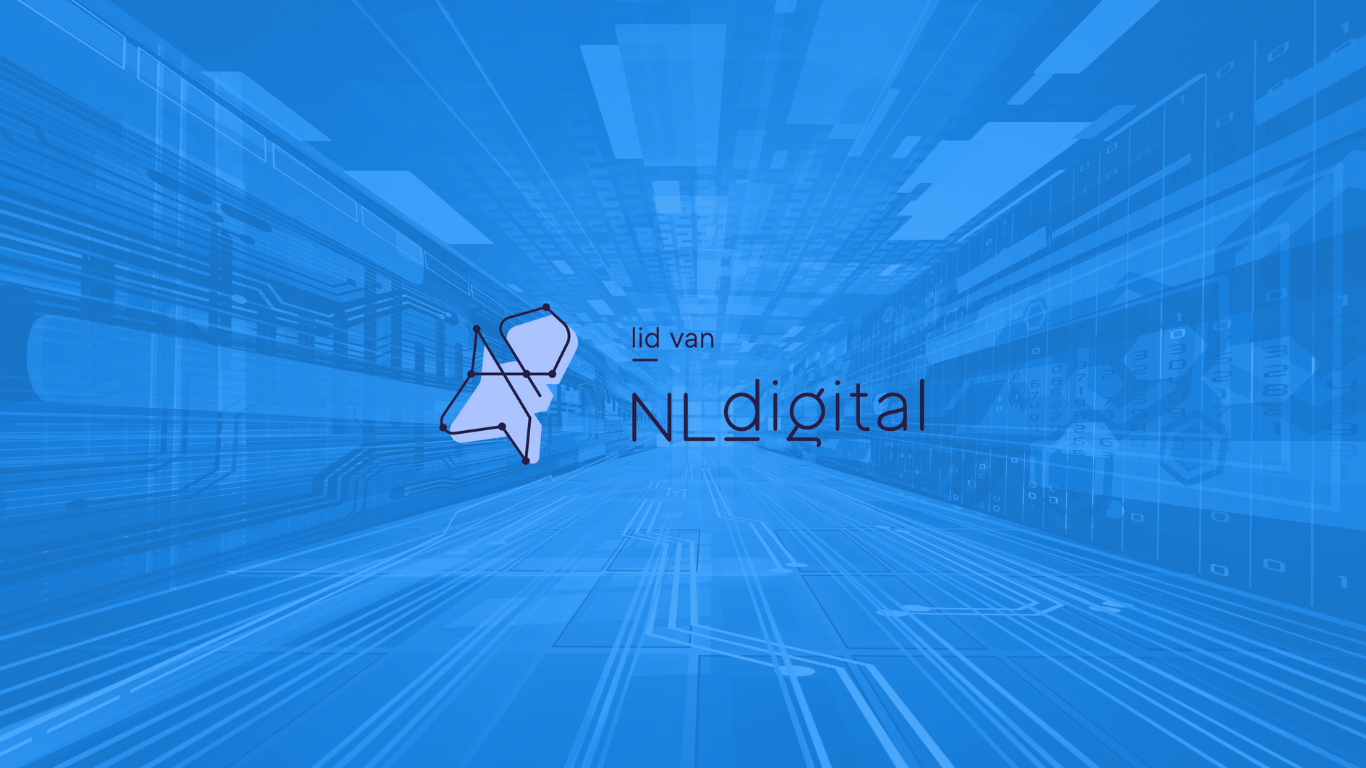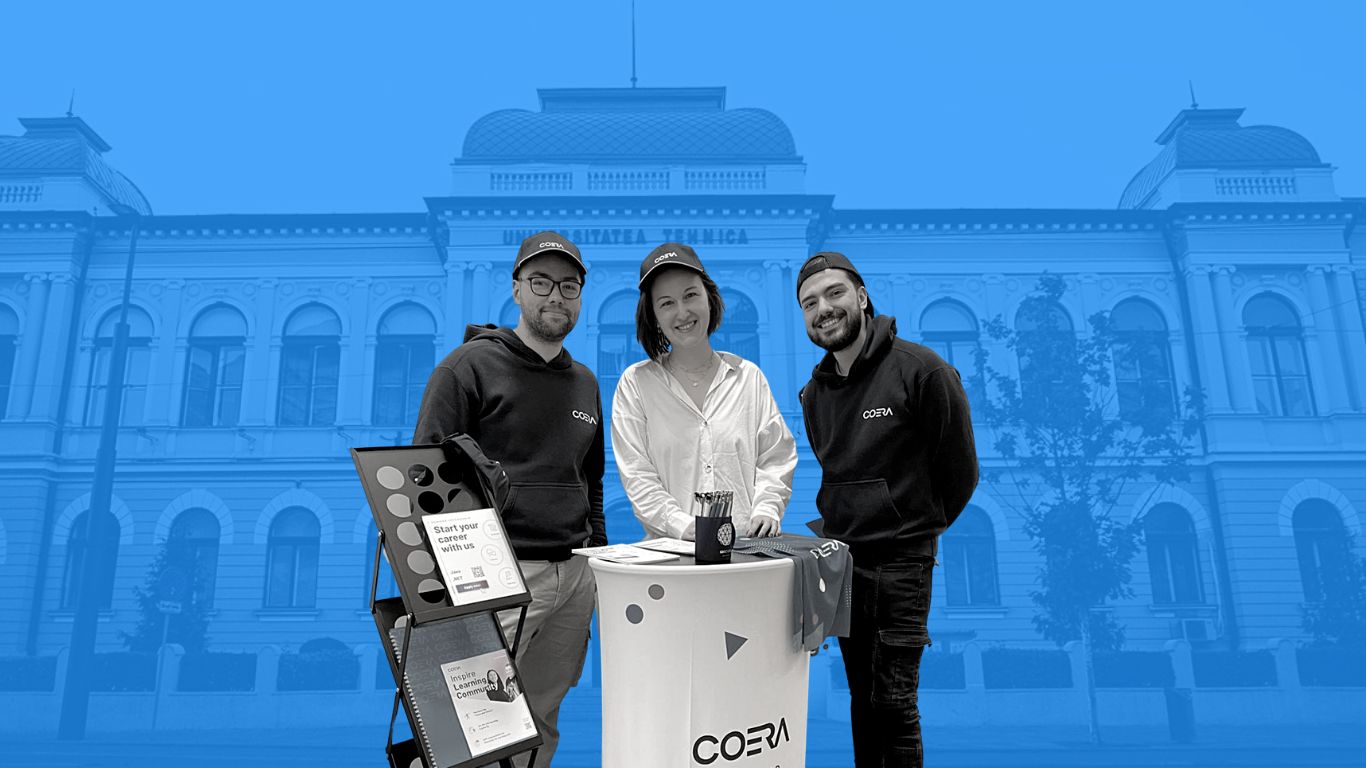Sharing the same philosophy as the Devoxx conference initiatives, Voxxed Days is a series of one-day, independently organized conferences happening all over the world. The events are striving to promote highly qualitative content and bolster a spirit of community among developers.
Last year brought about an edition of this conference in Cluj-Napoca as well, and on November 22nd a number of our colleagues at COERA were looking forward to discover what this event would bring to our city. The conference series continues with a conversation on the topics and speakers present at Voxxed Days Cluj-Napoca 2017.
Alexandra Spiridon: How did you come across this conference, Alin, and what brought about your interest in participating?
Alin Bizau: I first found out about it from a local meetup that I participated to, Dockerized Java, hosted by Transylvania Java User Group. During this event, at the end of the presentations, the organizers mentioned this conference that was about to take place for the first time in Cluj-Napoca and I was immediately drawn in to participate. I was especially interested in the international speakers who were invited, such as Google employees, the Voxxed Days founder and so on, and I was very eager to find out about novelties in my industry as well as the experts’ advice on technical matters.
Alexandra Spiridon: What about the workshop you participated to? How did you find it?
Alin Bizau: The workshop, Continuous Delivery: Jenkins, Docker and Spring Boot, was a bit more theoretical than I was expecting. The speaker first held a technical presentation on how to build an automated Continuous Delivery process using Jenkins and Docker and then made a small demo. Rafal Leszko, who is a Java Developer at Google, also wrote a book on the same subject.
Alexandra Spiridon: Andrei, did you encounter any topics that are not exactly usual at the moment, but you think might prove useful in the future?
Andrei Groza: The conference covered many diverse topics that extended over a large spectrum of domains. Although the accent was clearly placed on Java technologies, there were themes from other domains such as IoT, Web, DevOps, Cloud, and the speakers held high-quality presentations. Some of them, such as the three Java Champions present at the event, are very popular in the industry and have a lot of experience in the IT conference area, while others have a lot of experience acquired at large tech companies such as Google, IBM and Microsoft.
Compared to other IT-themed conferences I attended to here in Cluj-Napoca, this conference had a very high level of quality. Most themes were up-to-date, with subjects such as the future of Java/JVM, which I found very interesting, and other advanced topics such as Kafka, Continuous Integration, Pipelines, Elasticsearch and database-related best practices.
Alexandra Spiridon: In what ways would you say this event contributed to the local community of developers and to whom would you recommend this kind of experience?
Andrei Groza: I think this event positively impacted our community of developers here in Cluj-Napoca, who truthfully needed a conference of this level. I can say it was a big step ahead, compared to what we had here in Cluj until now, and I hope it only represents the beginning.
I also consider participating to this kind of conference can prove suitable for any level of experience. Even though some topics are quite advanced from the technical point of view, the fundamental principles still remain and can be applied regardless of the technology stack. Moreover, socializing is also an important aspect when it comes to these types of conferences. The speakers were very open, the presentations were essentially interactive and in my opinion the quality of a presentation also depends on the Q&A session at the end. Overall, the first edition of Voxxed Days in Cluj-Napoca was a genuine success and we hope it will persist over the years, with even more interesting and challenging topics.
Alexandra Spiridon: What were the main topics exposed at the conference, Diana?
Diana Vele: The presentations touched upon three main areas: Data Science & IoT, Java, Web & Cloud and DevOps & Architecture. Besides these three topics, there were two additional practical workshops, specifically “Angular 2 with Typescript” and “Continuous Delivery with Jenkins, Docker and Spring Boot” respectively.
Alexandra Spiridon: Tell me about a subject that captured your attention or had an impact on your working style.
Diana Vele: The presentation on asynchronous web entitled “How can we build the Asynchronous Web?” by Anton Caceres remained distinctly in my mind. Besides the fact that the presentation was concise, it stayed relevant, the speaker managed to keep the audience engaged and the subject was up-to-date. First off the speaker exposed a short history of front-end technologies, showed what there is on the market in terms of what technologies can offer as support for asynchronicity and lastly he presented a sneak peak of what will be introduced in the future.
Alexandra Spiridon: What topics did you choose to delve into and why did they pose an interest to you, Laszlo, as seen through your role of architect at COERA?
Laszlo Miklosik: I especially followed the DevOps & Architecture track because the subjects seemed most promising. However, what I enjoyed the most was a presentation related to Java/Web/Cloud (which turned out unrelated to Java after all, since the speaker delivering it was a Python-specialized developer). This speaker emphasized an aspect that is currently rather overlooked by many developers or architects: how to elegantly use and maintain asynchronous web features for a more scalable web. There is no excuse to using only synchronous methods nowadays, since the asynch-await pattern makes writing or using asynchronous methods very similar to the one used for synchronous methods.
I also found Adam Bien’s keynote very useful, which was highly focused on a pretty hard period for the frontend developers. He made an analogy between the JavaScript frameworks from this period and the application/web container segmentation from approximately 10 to 15 years ago (from the Java server-side world). I thought the recommendation to use standard ES6 features was very good, since there wouldn’t be any need to rewrite frontend applications every 6 months. As usual, he was very pragmatic and up-to-date with all the web standards. Sometimes, even if they’re not necessarily the newest, lead to a better maintainability of your applications.
At this conference there was a lot of noise regarding microservices but I found no new information. The Elasticsearch presentation was also very proficient and useful. The product is very good and the speaker showed a pretty relevant example related to how you could utilize it to create a google-type search experience.
Alexandra Spiridon: To whom is this conference aimed at in terms of professional experience?
Laszlo Miklosik: I think it’s mostly aimed at developers, but some presentations are intended for architects as well. As a general remark, it would be useful to have the presentations scored up on different levels (entry-level, thought of as an introduction to technology; advanced and so on). I would also recommend studying the program before the conference and decide, by and large, what presentations to attend to. However, in case a certain presentation turns out not as interesting or useful as anticipated, there should always be a plan B.
Alexandra Spiridon: How did you find the conference overall, Nelu, in terms of the subjects and the invited speakers?
Nelu Suciu: If I were to compare it to other Devoxx initiatives, I would say it was a small-scale, early-stage conference. Concerning the subjects, there were both high-level technical sessions on complex, specific subjects, presented by very proficient speakers, as well as sessions on less intricate subjects, but with considerable implications to the day to day work of a software engineer. In addition, there were a few practical sessions, I would say quite useful and pragmatic, in which the speakers discussed several capabilities of a few platforms.
Both the introductory keynote, presented by Adam Bien, and the ending session, delivered by the Devoxx and Voxxed Days pioneer Stephan Janssen, tackled Java as the primary subject. Interestingly, the first presentation focused on “an older”, more fundamental version of Java, Java EE, while the last session approached particular features that are going to be released in future versions of Java, Java 10, 11.
Alexandra Spiridon: To what extent did you find the conference topics relevant to your present-day working projects and, from your position as an architect at COERA, did it prove beneficial to implement in your projects?
Nelu Suciu: I did find utility and applicability at this conference, especially concerning two projects we are currently working on. I do hope we will shortly be able to implement these solutions as well (laughs). For one, we could integrate a new module called PIT mutation framework, in a FinTech greenfield project we have going on at the moment. Specifically, we are developing a hedging platform, and this module could help us improve the overall quality of our unit testing.
Another project we are currently advancing is a product of COERA, 360 BC platform, a complex tool which helps travel businesses organically grow their search engine rankings and streamline their content management efforts, amongst other capabilities. In this project we could make use of an open-source search and analytics tool, Elasticsearch, to develop a new feature for our product, namely integrate it with Google Search Console. We might need this new technology in case MongoDB, the database program we are currently using, does not support certain changes we want to perform.
Alin Bizau, Andrei Groza, Diana Vele, Laszlo Miklosik and Nelu Suciu are members of our team at COERA and are currently involved in elaborating an innovative Fintech greenfield platform in the area of FX trading and hedging. The solution is targeting the improvement of the risk management and operational efficiency for international active companies working with multiple foreign currencies.









